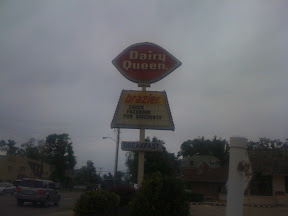Purpose of Groups
I'd recommend using groups for a close network of friends, family, or for a trusted network of colleagues or those with similar interests. There needs to be a dimension of trust and dependability of members to get use out of this function.
When Group participation starts to become active it does become apparent that information needs to be better aggregated for easier access. There still is not much structure for aggregating information via the Group. This however can be achieved by using outside services such as Google Apps and then linking that content back into the Group.
Currently you can add Posts, Links, Photos, Videos, Events, and Docs to Group members. You can also conduct Group chat.
Privacy
Multiple administrators can be added to a Group. The administrator(s) can decide to make the Group one of the following:
- Open: members and content is public
- Closed: members public and content is private
- Secret: members and content are private
Notifications
This is a very important function to gain control of as soon as you join a Group. When you are in the Group, you'll see the "Edit Notifications" icon towards the top right. You can choose your notification options there. Note: if you do not want email notifications make sure you uncheck the box at the bottom. If there is a lot of activity in the group you will receive a large number of notifications both in your Facebook notification feed and your designated email inbox if you have not deselected the appropriate boxes.
- Facebook notification: when you perform activity in the Group and someone replies or interacts with that activity, you will receive a notification via the traditional Facebook notifications tab on your main Facebook page
Group chat
The group chat allows you to chat with members in the Group that are currently online. At this stage note that all conversations held in Group chat are available for all members to see.
Therefore, Group chat should be relegated to casual conversation, with more specific interaction taken to individual chat or email.
At current wall posts are the only way to develop interaction in a thread like manner. However, there are no threads in this new version of Groups. In order to get collaborative use out of this Groups function I'd recommend that people begin with the Wall posts function: post something. This helps to get interaction, exchange, and collaboration started.
I'd recommend that after a wall post develops much interaction with value added content, that perhaps it then is copied and pasted in to a Document so it can be better referenced over time.
As activity in the Group increases it becomes increasingly difficult to keep up with general information that flows in and out of the Group through wall posts. This information needs to be better managed. As previously mentioned, this may better be addressed by using outside services such as Google Apps and then linking into the Group. The Group can also use the Docs function, highlighted below.
Docs
The docs function allows members of the Group to create standing, editable documents. This function has a very easy to use interface. Docs are also available and can be accessed on the right hand side of the Group page.
Adding members
Once you are at the Group page the web address can be copied and emailed, tweeted, etc.. to anyone and they can click that link and request an invite to be added to the Group (the user has to have a Facebook account). The administrator will have to approve.
All members of a Group can invite other members. Therefore, you really should have a clear understanding of the purpose of your Group and who you want to invite. That fact alone means you should have a handle on your trust, dependability, and willingness to collaborate with potential Group members before they are invited. To repeat, all members of a Group can invite new members. You do not have to be an administrator to invite new users. Pick your members wisely.
Leaving the Group
You may find that you have randomly been added to a Group. You can easily opt out of the Group by choosing "Leave Group" on the right hand side of the Group page. However, once you leave you have to be reinvited to be added to the Group.



